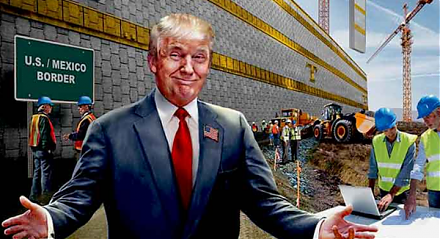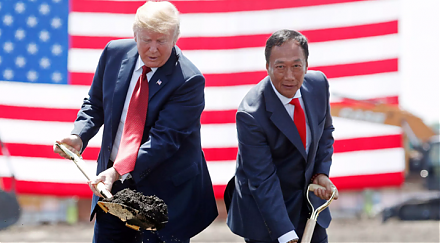

2018-01-15 07:35:00 Mon ET
technology antitrust competition bilateral trade free trade fair trade trade agreement trade surplus trade deficit multilateralism neoliberalism world trade organization regulation public utility current account compliance
Treasury Secretary Steven Mnuchin welcomes a weak U.S. dollar amid pervasive fears of an open trade war between America and China. At the World Economic Forum, Mnuchin now praises the steady greenback devaluation that helps promote competitive U.S. export prices. This praise adds noise to the status quo as Trump seeks to withdraw from the North American free trade agreement, the Paris climate change accord, and the Trans-Pacific Partnership. Canadian, French, and Indian prime ministers accuse the Trump administration of unfair protectionism that trade deficits beget tariffs, quotas, and even embargoes.
Trumpism prevails in the face of international reprehension when the weaker dollar reaches a 3-year trough and gold prices rise to the highest level in about 2 years. Throughout the Reagan, Clinton, Bush, and Obama administrations, we associate each sharp greenback depreciation with key fiscal stimulus, export expansion, and subsequent interest rate hike. In order to resolve the twin deficit problem (i.e. both fiscal deficit and trade deficit), the Federal Reserve needs to raise the interest rate further to attract capital flows from abroad.
It is important for the Trump team to attract foreign investors to buy Treasury bonds to finance the perennial U.S. fiscal debt and deficit. Key exchange rate stabilization remains a hot pursuit for both U.S. policymakers and regulators to serve in the best interests of American workers and investors.
If any of our AYA Analytica financial health memos (FHM), blog posts, ebooks, newsletters, and notifications etc, or any other form of online content curation, involves potential copyright concerns, please feel free to contact us at service@ayafintech.network so that we can remove relevant content in response to any such request within a reasonable time frame.
2023-12-05 09:25:00 Tuesday ET

Better corporate ownership governance through worldwide convergence toward Berle-Means stock ownership dispersion Abstract We design a model
2017-12-21 12:45:00 Thursday ET

Tony Robbins summarizes several personal finance and investment lessons for the typical layperson: We cannot beat the stock market very often, so it w
2024-10-27 07:56:01 Sunday ET

Stock Synopsis: China Internet tech titans continue to grow amid greater competition. We launch our unique coverage of top 25 China Internet stocks. In t
2019-01-07 18:42:00 Monday ET

Neoliberal public choice continues to spin national taxation and several other forms of government intervention. The key post-crisis consensus focuses on go
2019-01-05 11:39:00 Saturday ET

Reuters polls show that most Americans blame President Trump for the recent U.S. government shutdown. President Trump remains adamant about having to shut d
2018-11-21 11:36:00 Wednesday ET

Apple upstream suppliers from Foxconn and Pegatron to Radiance and Lumentum experience sharp share price declines during the Christmas 2017 holiday quarter.